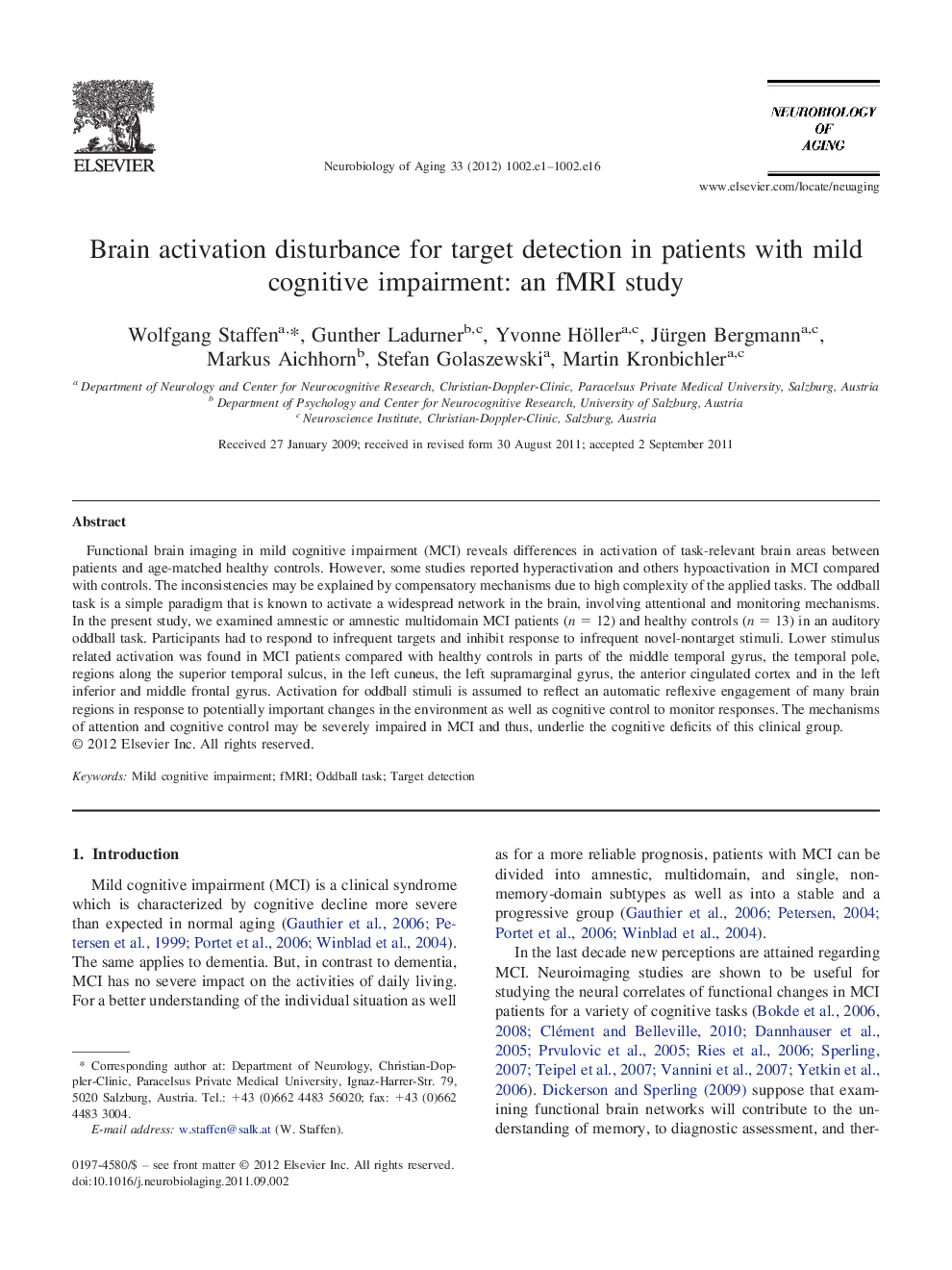| Article ID | Journal | Published Year | Pages | File Type |
|---|---|---|---|---|
| 6809138 | Neurobiology of Aging | 2012 | 16 Pages |
Abstract
Functional brain imaging in mild cognitive impairment (MCI) reveals differences in activation of task-relevant brain areas between patients and age-matched healthy controls. However, some studies reported hyperactivation and others hypoactivation in MCI compared with controls. The inconsistencies may be explained by compensatory mechanisms due to high complexity of the applied tasks. The oddball task is a simple paradigm that is known to activate a widespread network in the brain, involving attentional and monitoring mechanisms. In the present study, we examined amnestic or amnestic multidomain MCI patients (n = 12) and healthy controls (n = 13) in an auditory oddball task. Participants had to respond to infrequent targets and inhibit response to infrequent novel-nontarget stimuli. Lower stimulus related activation was found in MCI patients compared with healthy controls in parts of the middle temporal gyrus, the temporal pole, regions along the superior temporal sulcus, in the left cuneus, the left supramarginal gyrus, the anterior cingulated cortex and in the left inferior and middle frontal gyrus. Activation for oddball stimuli is assumed to reflect an automatic reflexive engagement of many brain regions in response to potentially important changes in the environment as well as cognitive control to monitor responses. The mechanisms of attention and cognitive control may be severely impaired in MCI and thus, underlie the cognitive deficits of this clinical group.
Related Topics
Life Sciences
Biochemistry, Genetics and Molecular Biology
Ageing
Authors
Wolfgang Staffen, Gunther Ladurner, Yvonne Höller, Jürgen Bergmann, Markus Aichhorn, Stefan Golaszewski, Martin Kronbichler,
